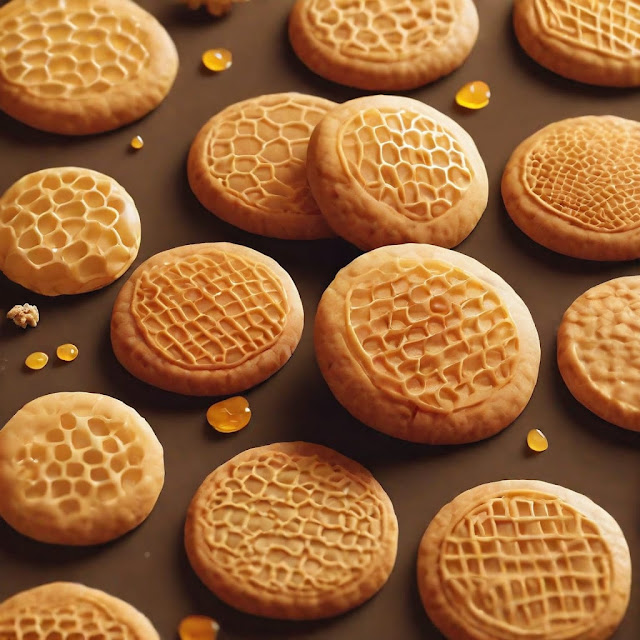Yakgwa is a cherished gem in Korea sweets, a confection that transcends dessert to embody artistry and tradition. With a perfect blend of crunch and chew, this treat's carefully crafted dough and deep-frying technique yield a unique texture. Adorned in shapes reflecting nature's beauty, yakgwa is more than a dessert; it's a celebration of Korean culture, offering a nuanced taste and meticulous preparation that make it a standout in festive gatherings. Dive into the enchanting world of yakgwa, where each bite is a journey through the rich tapestry of Korean culinary heritage.
Yakgwa Texture:
Yakgwa boasts a distinctive texture that captivates the palate. The outer layer, achieved through deep-frying, imparts a delightful crunch, providing a satisfying contrast to the chewy and tender interior. The careful balance between the crispy exterior and soft core contributes to the overall appeal of this traditional Korean sweet.
Yakgwa Flavor:
The flavor profile of yakgwa is a harmonious blend of subtle sweetness and fragrant nuances. The inclusion of honey adds a gentle sweetness that is not overpowering, while sesame oil introduces a distinct nuttiness. The use of ginger juice contributes a subtle spiciness, creating a layered taste that is both unique and appealing. Together, these elements create a flavor experience that reflects the cultural richness of Korean cuisine.
Cultural Significance:
Yakgwa is more than a sweet indulgence; it's a symbol of Korean heritage. Adorned with intricate shapes, it takes center stage during celebrations, reflecting the meticulous craftsmanship ingrained in Korean culture. The blend of honey, sesame oil, and ginger juice not only creates a unique flavor but also connects this confection to the roots of Korean cuisine. Sharing yakgwa becomes a communal experience, a gesture that goes beyond dessert, fostering a sense of community and preserving cultural
traditions through generations.
Indulge in the authentic flavors of Korean cuisine with this easy-to-follow yakgwa recipe:
Ingredients:
- 2 cups all-purpose flour
- 1/4 cup honey
- 1/4 cup sesame oil
- 2 tablespoons ginger juice
- Oil for deep-frying
Instructions:
1. In a bowl, combine flour, honey, sesame oil, and ginger juice. Knead until a smooth dough forms.
2. Roll out the dough and cut it into desired shapes using cookie cutters.
3. Heat oil for deep-frying to 350°F (175°C).
4. Fry the dough shapes until golden brown, then drain excess oil on paper towels.
5. While still warm, coat the yakgwa with an additional layer of honey for a subtle glaze.
6. Allow to cool before serving. Enjoy the delightful crunch and chewy texture of homemade yakgwa!
In every delicate bite of "yakgwa" , one discovers not just a dessert but a piece of Korea's rich cultural mosaic. As the flavors linger, so does the echo of centuries-old traditions and the joyous moments shared around its sweetness. May each indulgence in this exquisite treat be a continuation of the vibrant story woven into the fabric of Korean culinary heritage, reminding us that the essence of culture is often found in the simplest and most delightful pleasures.*
Commonly Asked Questions:
Q: How are yakgwa typically eaten?
A: Yakgwa is typically enjoyed as a sweet delicacy, often served during festive occasions or as a treat with tea. Its unique texture makes it a delightful snack.
Q: Can yakgwa be stored?
A: Yes, yakgwa can be stored in an airtight container at room temperature for several days. However, it's best consumed fresh to savor its unique texture and flavors.
Q: Are there any vegan or gluten-free versions of yakgwa?
A: Traditional yakgwa recipes contain honey and wheat flour, making them non-vegan and not gluten-free. However, creative adaptations using alternatives like agave syrup and gluten-free flour may offer vegan or gluten-free options.
Q: How is yakgwa pronounced?
A: Yakgwa is pronounced as "yahk-gwah" in Korean, with emphasis on the first syllable.

Comments
Post a Comment